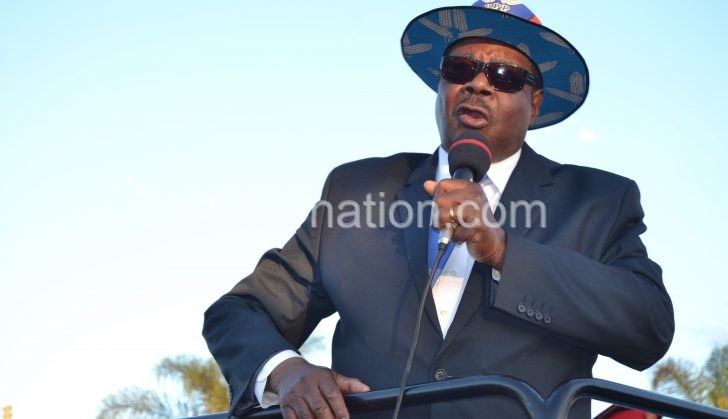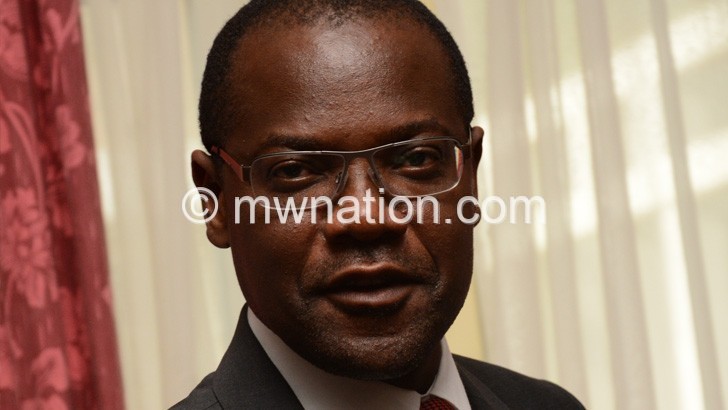Govt pushes back on ACB reforms
- President should appoint ACB directors—Tembenu
President Peter Mutharika and Justice and Constitutional Affairs Minister Samuel Tembenu are pushing back on calls to trim presidential powers on the appointment and firing of key officers for institutions that fight corruption despite strong recommendations from the two-day government sponsored conference which ended yesterday in Lilongwe.
However, Speaker of the National Assembly Richard Msowoya has strongly criticised government for dragging its feet on reviewing laws and underfunding institutions that play an oversight role such as parliamentary committees.

The Speaker said by ignoring recommendations by Parliament and the donor community that the Anti-Corruption Bureau (ACB) should be independent, the President lacks the high moral ground to complain about issues of perception that corruption is rife in the country.
The conference closed amid calls from stakeholders to review, in particular, the law governing the ACB.
But Mutharika and Tembenu leapt to the defence of the status quo in terms of the legal framework. For example, Mutharika who failed to commit to any change of the law on the matter, further dismissed allegations of political interference and appeared to dismiss fears that his own government was affected by high level corruption.
“Then there is the perception that my government is shielding corrupt government officials or that it is pursuing selective justice. Let me remind everybody that if shielding officials was part of my government’s policy, the ACB would not have been able to search the house of a government minister or arrest some party officials. Government does not dictate to the ACB in the manner it executes its mandate. My government stands resolved and unshaken to fight corruption, and will fight it all the way,” stated Mutharika.

Instead, Mutharika attacked the media for allegely making baseless allegations against Cabinet ministers, saying this was creating a perception that his government was corrupt.
“For over a year now, some newspapers have been awash with stories of the so-called seven corrupt ministers in my Cabinet. This is a perception created to frustrate our fight. When we perpetuate stories like these without providing evidence, the result is that our perception index falls dramatically and more harm is done to the country,” said Mutharika.
The President went on to attack his immediate predecessor Joyce Banda, saying the country is still suffering from the massive consequences of Cashgate, a K24 billion corruption scandal which happened in 2013 during Banda’s presidency.
However, Msowoya, speaking earlier, questioned government’s motivation for continued reluctance to usher in new sweeping powers for ACB that will also guarantee its independence.
“We cannot do away with perceptions of corruption if, as it so often happens, the National Assembly makes recommendations or passes motions aimed at enhancing the fight against corruption and the Executive does nothing about them.

“When there is apparent little or no interest in taking what the people’s representatives feel are important steps in the fight against corruption, there will be speculation on why those steps are being avoided. And it is not long ago that we had a Private Member’s Motion in Parliament aimed at achieving what I have alluded to earlier–freeing the ACB from external pressure and influence–but this was, unfortunately in my view, defeated. The questions that linger in people’s minds are: What are we afraid of? How does an independent ACB threaten anyone?” he said. His views were shared by many delegates at the conference.
Secretary to Justice and Solicitor General Janet Banda said the issue of appointment of ACB directors is among the resolutions of the conference.
But Tembenu in his speech, opted to highlight the powers of the President and also suggested the issue of presidential appointment and its impact on independence of the office was mere perception.
“If you are the person who takes ultimate responsibility in matters to do with corruption, I do not see the sense in divorcing your office from appointing persons to these offices. It has to do with something else,” said Tembenu.
According to Transparency International (TI) Corruption Perception Index (CPI) released in January, corruption has worsened in the country since 2012.
The index shows that the country has moved up eight places from position 112 in 2015 to 120 in 2016. The CPI indicates that on a score of 0-100, zero being highly corrupt, Malawi scored 31, which is within the red zone of the CPI between 0-39.
The increasing rank has the potential to keep away potential investors and development partners who use the CPI to estimate the level of risks for business and investments in a country. n





